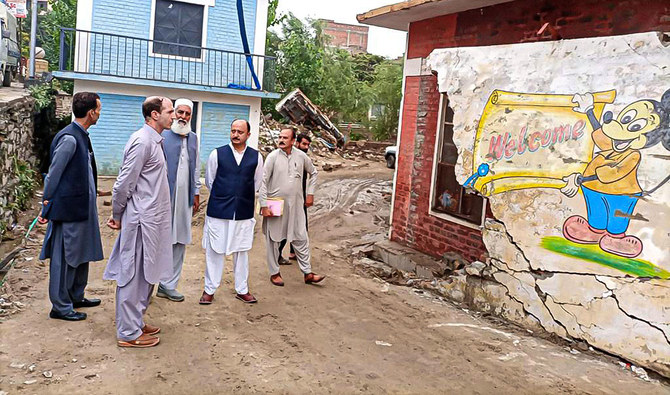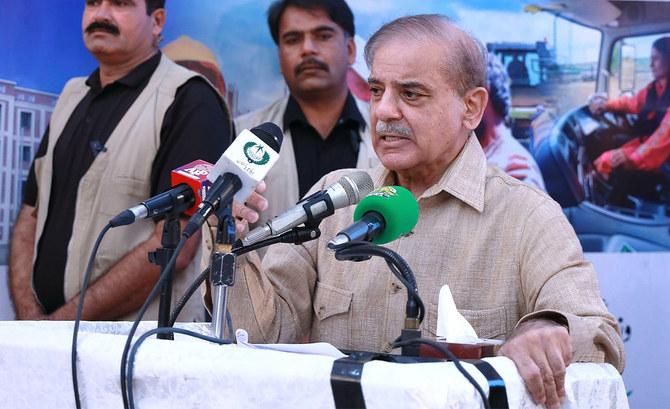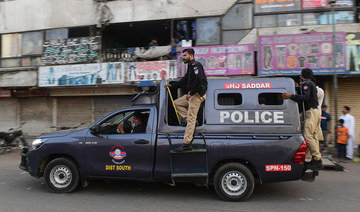PESHAWAR: Recent floods in Pakistan have damaged at least 1,500 government schools in different parts of the northwestern Khyber Pakhtunkhwa province, with the education department struggling to save the academic year of thousands of students, senior government officials said.
Flooding, likely worsened by climate change, has submerged one-third of Pakistan’s territory, killed over 1,600 people and left 33 million scrambling to survive. The initial government estimate of losses to the economy as a result of the three-month flooding disaster is $30 billion.
The consequences have been especially horrific for children, who make up about half the affected population.
More than 400 children have been killed in the floods, and many more injured. UNICEF said at least 3.4 million children need urgent humanitarian assistance and are at increased risk of waterborne diseases, drowning, and malnutrition. Most of the approximately 16 million affected children are without homes, lack access to safe drinking water, and are living in unsanitary conditions.
Save the Children said earlier this month at least 18,590 schools have been damaged or destroyed in the flooding, with initial estimates that at least 670,000 children have been affected, although the real number could be much higher. With whole villages underwater and rain continuing to fall, thousands of students across the country who had been preparing for the start of the academic year have found their schools completely submerged, with books, blackboards, chairs and tables floating downstream.
Shahram Khan Tarakai, provincial minister for elementary and secondary education, told Arab News at least 1,500 government-run schools had been destroyed in Khyber Pakhtunkhwa province.
“The scale of damages is massive and we’ve launched a comprehensive survey to identify construction cost, exact number of damaged schools and the number of students studying in those institutions,” he said. “Most of the schools need rebuilding from scratch. We also need to reconstruct the damaged schools in new locations to minimize the scale of catastrophe in the future.”
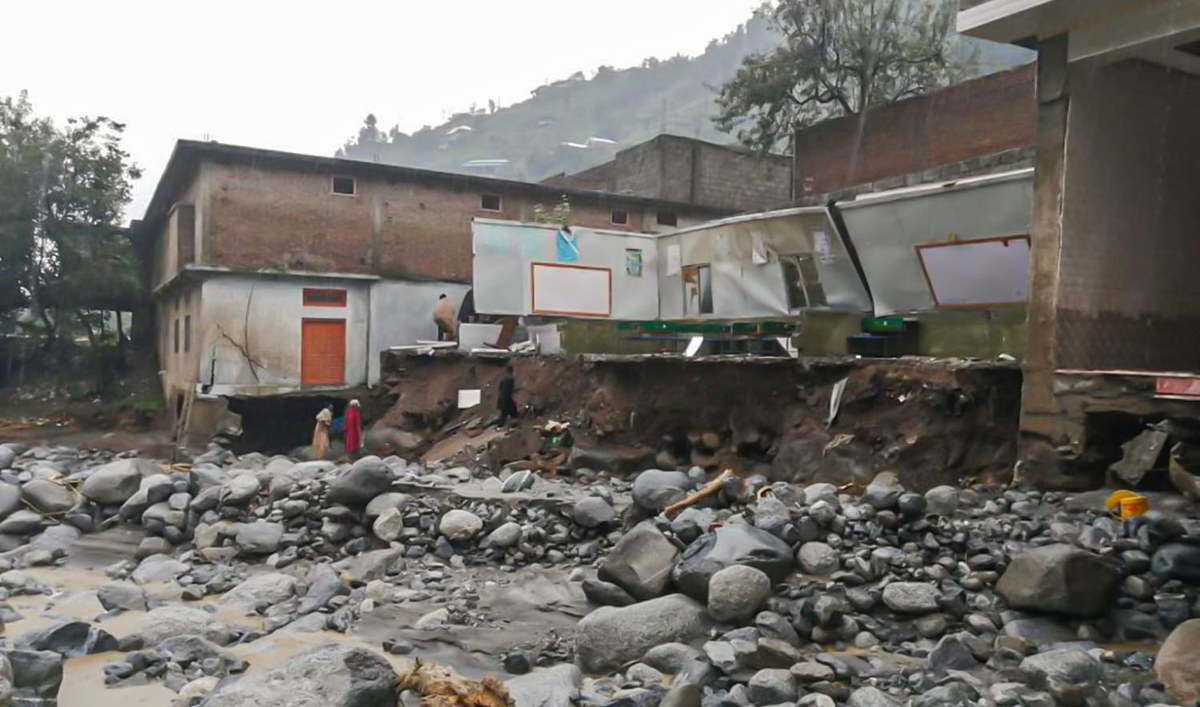
In this undated photo, a wall of the school is damaged due to recent floods in Pakistan's Khyber Pakhtunkhwa province. (Photo courtesy: KP Elementary and Secondary Education Department)
Assessments of rebuilding costs were being carried out by the education department, the minister said, adding that a month’s school time of students had already been wasted. The government was also trying to utilize other government buildings as makeshift schools, he added.
“The Global Education for All (GEA) has pledged $2.3 million to rebuild damaged educational institutions in the province with the implementing partnership of UNICEF,” Tarakai said. “In addition, the World Bank has also offered financial assistance to repair schools.”
According to a survey by the government’s Departmental Flood Response Plan, a damages assessment body, a total of 1,746 educational institutions have been damaged in Khyber Pakhtunkhwa and would need funds of around Rs7.2 billion to rebuild.
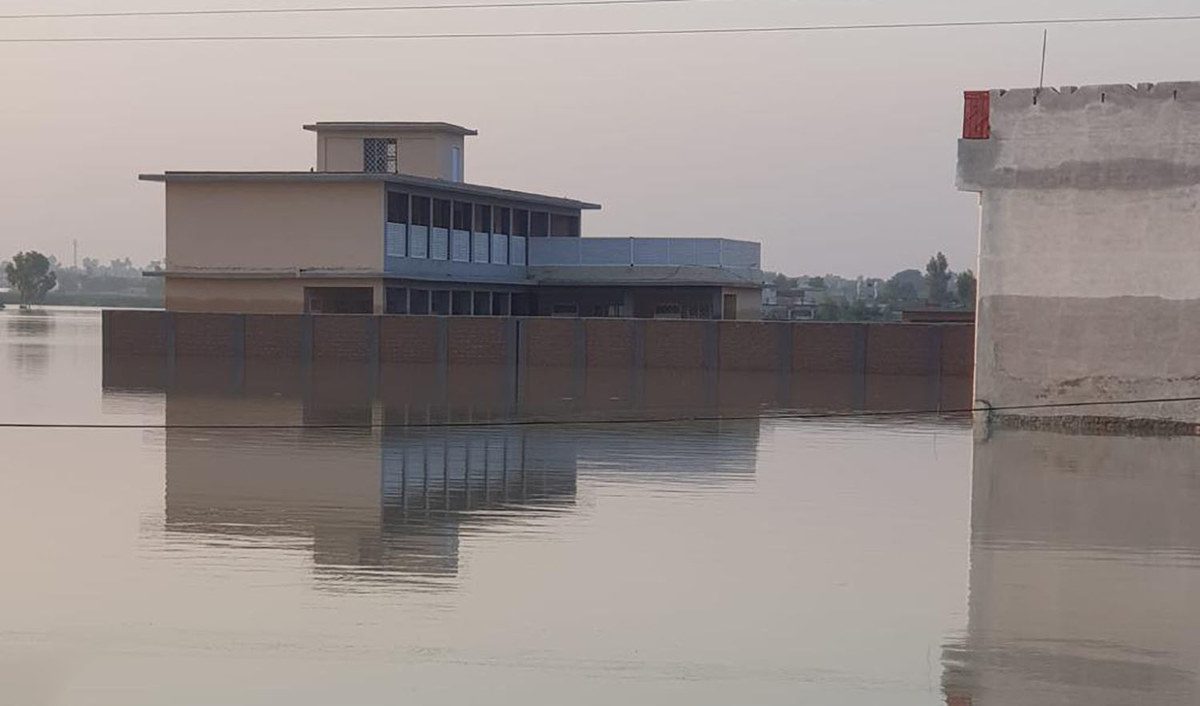
This undate picture shows an inundated school in Pakistan's Khyber Pakhtunkhwa province. (Photo courtesy: KP Elementary and Secondary Education Department)
Ibrash Pasha, a researcher who studies post-conflict educational reforms, said almost 4.5 million children aged between five to 16 years were out-of-school in KP.
“If alternative space is not provided urgently, the fully damaged schools will cause almost 60,000 more students to drop out of school,” Pasha told Arab News. “We’ve observed a declining literacy rate and dropouts from school primarily due to two main reasons, the coronavirus pandemic followed by inflation. But the recent floods are the third major factor contributing to this.”
The scholar recommended the government open schools in official buildings and build new schools in “comparatively safer places” to avoid such losses in the future.
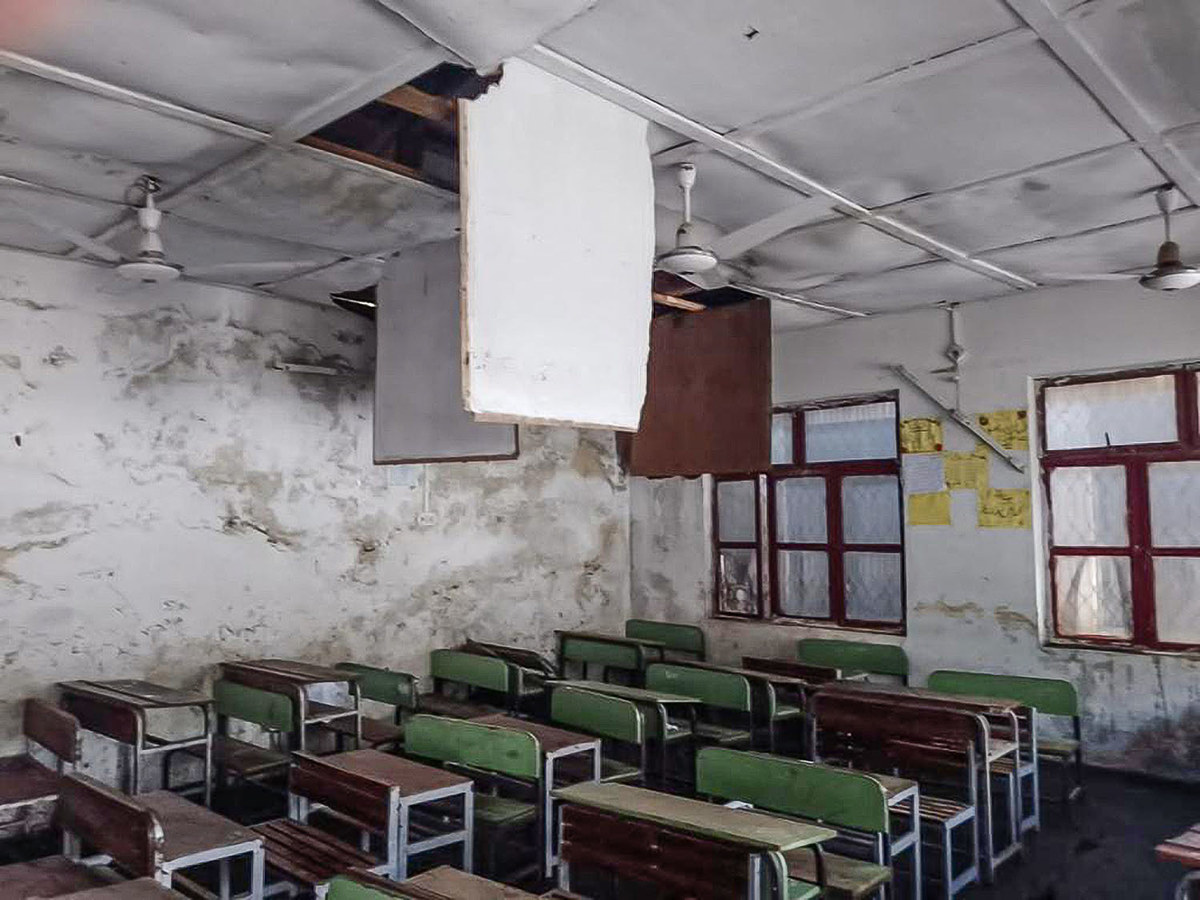
The undated picture shows a damaged roof of a school due to floods in Pakistan's Khyber Pakhtunkhwa province. (Photo courtesy: KP Elementary and Secondary Education Department)
Minister Tarakai estimated it would be at least a year before the education sector “returned to normalcy because of the magnitude of the damages.”
The floods came, he said, as the education department had been carrying out a province-wide school enrolment drive.
“In one month [July to August], we enrolled almost 0.8 million boys and girls in schools in KP, which was an outstanding achievement. But floods caused a huge setback to those efforts.”



